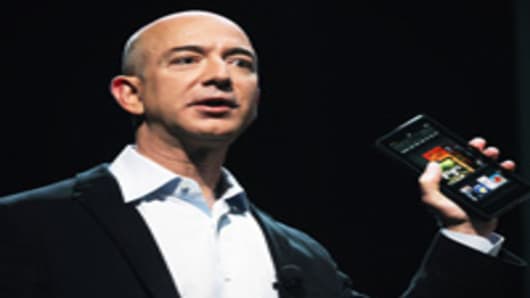In 2007 Bezos created the Kindle, the first successful e-book reader (and still the most popular). Now he's about to start selling the Kindle Fire, which most reviewers have dubbed the first real competitor to the iPad. It includes a clever browser called Silk, which taps Amazon's own cloud computers in order to download big files very quickly before transferring the data to the Kindle Fire.
But he still hasn't shown the ability to be the pioneer in electronics that Jobs was. Jobs created Ferraris, top-performing and expensive products that set a gold standard. Bezos is more utilitarian. His devices, like everything Amazon, are designed for the masses: cheap, high-volume products created more for their ability to act as receptacles for other Amazon products, such as its e-books and the streaming videos that Bezos now offers as an alternative to Netflix.
Bezos, like everyone else, has tended to follow Jobs's lead. Given Bezos's knowledge of computer networks, one might have expected him to realize much earlier than he did that books could be sold and shipped electronically. But the Kindle was released six years after Steve Jobs pioneered a similar download service for music, with iTunes and the iPod . Kindle Fire was a direct response to the iPad.
What Bezos has to do now is show that he can come up with original ideas that add incredible value to the world of electronics—devices that show others the way. Only then can he be considered the successor to the genius Steve Jobs. He's certainly going to try.
Richard L. Brandt is the author of “One Click: Jeff Bezos and the Rise of Amazon.com,”to be released October 27, and “The Google Guys: Inside the Brilliant Minds of Google Founders Larry Page and Sergey Brin,” now in paperback.
Email me at bullishonbooks@cnbc.com — And follow me on Twitter @BullishonBooks



